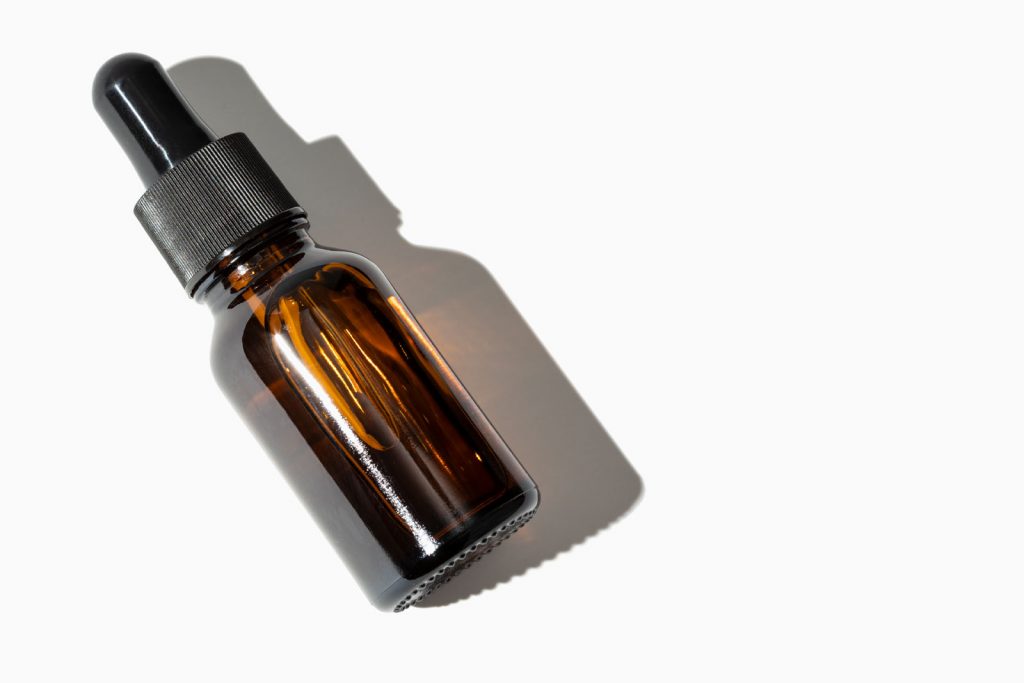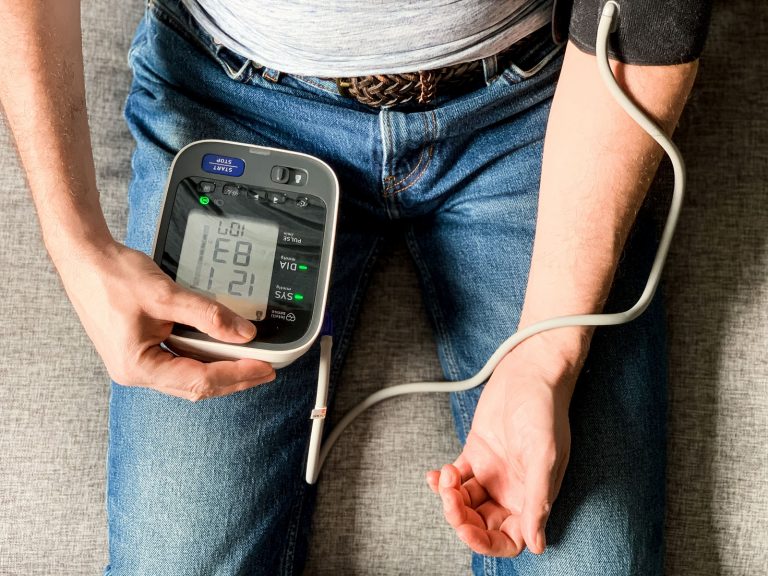Learn about natural remedies for enlarged prostate. Find out how to reduce prostate size without medication or surgery on our blog.
Effective Natural Treatments for Enlarged Prostate Healthier You

Key Takeaways
- BPH is caused by an increase in prostate cells, leading to an enlarged prostate that can put pressure on the bladder.
- Lower urinary tract symptoms (LUTS) include weak stream, urgency, and frequent urination.
- Risk factors for BPH include diabetes, obesity, metabolic syndrome, inflammation, and dietary influences.
- Side effects of medications and surgery for BPH include erectile dysfunction, dizziness, and hormonal imbalances.
- Functional medicine uses hormone testing, nutrient assessment, and lifestyle interventions to address prostate enlargement.
- Natural treatments like zinc, lycopene, β-sitosterol, pollen extracts, stinging nettle, and Pygeum Africanum have shown promise in reducing prostate size and improving symptoms.
- Weight management, reducing alcohol and caffeine, and increasing nutrient-dense foods can all help slow disease progression and improve prostate health.
Introduction
Prostate enlargement is one on the most common conditions men present with in our clinic. Approximately 50% of men over 50, and 80% of men over 80 have symptoms of prostate enlargement. Doctors don’t have a great understanding about the science behind the possible benefits of natural treatments for enlarged prostates that are available. This is not said with any disrespect- doctors are not (generally) trained specialists in clinical herbal or nutritional medicine. The supplements we will discuss in this article all demonstrate evidence-based abilities to reduce prostate enlargement by targeting the physiological processes behind the change. Not only that, but many supplements can also reduce the symptoms of BPH, which includes urinary difficulty.
With a combination of lifestyle changes, nutritional support and appropriate dietary supplements (they differ for every man!), we see amazing improvements in our patients prostate health.
To begin, it is important to understand the physiological mechanisms behind prostate enlargement in order to appreciate how these natural treatments work.
Why is My Prostate Enlarged? And What Is LUTS?
The medical term for an enlarged prostate is benign prostatic hyperplasia or BPH for short. Prostatic hyperplasia means the cells of the prostate gland have multiplied- and benign means the cells have done so in a non-malignant manner. However, the increased size of the prostate puts pressure on the bladder, and this causes the uncomfortable urinary symptoms.
LUTS stands for lower urinary tract symptoms. LUTS includes issues with voiding (such as having a weak stream, hesitancy, or incomplete bladder emptying) or storage symptoms (such as increased frequency, urgency and bladder overactivity at night).
Men can experience mild to severe symptoms, and they can really affect quality of life. Fast diagnosis so we can quickly support and minimise your discomfort (and progression of the hyperplasia) is key.
What Causes Prostate Enlargement?
Lots of things contribute to the process of hyperplasia, including nutritional status, hormonal changes and medication use.
Here is a list of risk factors which may increase your chances of prostate growth– many which are modifiable (which is great because you can change them!)
- Diabetes and use of anti-diabetic medications, particularly insulin, appear to increase the risk of BPH & LUTS.
- Dietary factors influence the development of BPH. Beta-carotene, carotenoids, and vitamin A are protective, while excessive alcohol ingestion, heavy caffeine intake, and high-dose supplemental vitamin C tend to increase BPH risk and symptoms.
- Genetic predisposition.
- Localised inflammation is often associated with BPH.
- Autoimmune disorders- which create systemic inflammation.
- Obesity is associated with an increased risk of BPH- likely due to increased levels of systemic inflammation and higher levels of oestrogen produced by fat cells.
- Metabolic syndrome including hypertension, glucose intolerance/insulin resistance, and dyslipidemia. Meta-analysis have demonstrated men with metabolic syndrome and obesity have increased prostate volumes.
How is Benign Prostatic Hyperplasia Diagnosed?
Correct diagnosis of enlarged prostate is important to make sure anything else is excluded.
To diagnose BPH a thorough history is taken to assess the nature and severity of your symptoms. Other investigations can include:
- International Prostate Symptoms Severity (IPSS) questionnaire. This assists diagnosis and can monitor your response to our treatment
- Mid stream urine test to exclude any infection or blood in urine
- Prostate-specific antigen (PSA) blood test
- Renal tract ultrasound to assess prostate size, bladder emptying and kidney health Urinary flow rate to measure flow and assess bladder emptying
- Flexible cystoscopy to assess the lining of the bladder and urinary tract
Clinical Diagnosis Challenges in BPH
The clinical diagnosis of benign prostatic hyperplasia, or BPH, can be tricky. Current ways to check, like digital rectal exams and urine tests, may not clearly tell benign prostatic hyperplasia (BPH) apart from other conditions. Also, other urinary system issues (such as urinary tract infections) can have similar symptoms to BPH. If we only rely on symptoms, it may take longer to get an accurate diagnosis for early detection of BPH. This highlights the importance of thorough screening. We can provide referral to your GP if required.

What Are the Treatments for Enlarged Prostate?
It’s important to appreciate that every man is different, and his treatment plan needs to reflect that.
Medical treatments for enlarged prostate glands can include alpha blockers, 5-alpha reductase inhibitors or a combination of both. Although these can be effective, unfortunately these medications are associated with many common side effects (some of which can be permanent) and these include dizziness and low blood pressure, fatigue, erectile dysfunction, and decreased libido.
Here’s a little bit more info about each of the medications available:
Alpha Blockers (such as Prazosin, Tamsulosin, Silodosin). These work by relaxing the bladder neck and prostate. They may provide symptom relief but don’t treat the underlying cause or change the natural progress of the disease.
5A-reductase inhibitors (Dutasteride, Finasteride). Can achieve a > 25% reduction in prostate size over 6-9 months by altering sex hormones- however hormonal changes may come with side effects. These drugs can improve symptoms and possibly reduce need for surgery
Surgical options like the transurethral resection of the prostate (TURP) have risks too. People may experience urinary incontinence and retrograde ejaculation after this surgery. Because of these issues, it is important to weigh up your options carefully before proceeding with any treatment.

How Can I Reduce My Enlarged Prostate?
Given the lifestyle and dietary factors which contribute to prostate hyperplasia, functional medicine takes a slightly more detailed view of testing and treating BPH. We don’t just mask the symptoms- we look to see what needs to be supported to reduce symptoms and long-term disease progression.
This might include testing hormone levels, assessing zinc status, or analysing the nutritional density of your diet to pick up on any shortfalls that need to be corrected. Without finding the root cause of enlarged prostate, there’s a good chance the problem will continue to escalate.
Top Natural Treatments for Enlarged Prostates
Below is some information on natural treatments for BPH that I may use with my patients.
An important note: I never prescribe herbs or nutrients without a full health screening. Every man has different contributing causes of BPH, and a single supplement will not solve the problem. And if you have no qualification in herbal and nutritional medicine, there’s a good chance you’ll be missing something- or adding something that may have significant side effects!
1. The Role of Zinc in Prostate Health
Zinc is an essential nutrient for male reproduction and is very important for prostate health. Zinc has antioxidant and anti-inflammatory properties, and is found in high quantities in the prostate gland.
Zinc can also inhibit prostate cancer cell growth and low zinc levels have been associated with increased prostate cancer incidence.
That being said, there are also risks to taking too much supplemental zinc! I often test patients before prescribing zinc. Studies show the key to zinc therapy is achieving sufficient levels for a healthy prostate not too much, not too little!
You can include sources of zinc in your daily diet. Zinc is found in both animal and plant-based foods. Red meat, poultry, and seafood (especially oysters, crab, and lobster) also provide high levels of bioavailable zinc. Plant-based options include legumes (like beans and lentils), pumpkin seeds and cashews, and whole grains like quinoa and oats- although it is important to note that plant sources are less efficiently absorbed.
2.Lycopene: An Antioxidant for Enlarged Prostate
Lycopene is an antioxidant which is great for prostate health. It is found in tomatoes and other pink and red fruits and veggies. Some of the highest sources include tomatoes, watermelon, pink grapefruit, and red capsicum. Red cabbage is another vegetable with high in lycopene. Interestingly, cooking tomatoes and other lycopene-rich foods increases the bioavailability of lycopene, which means it makes it easier for the body to absorb!
Research shows that lycopene can reduce the progression and symptoms of BPH, and lower the risk of prostate cancer, mainly through its antioxidant activity.
3. Benefits of B-Sitosterol in Managing BPH
B-sitosterol is a plant-based compound, known as a plant sterol or phytosterol, that is structurally similar to cholesterol found in animal products. B-Sitosterol is found in an assortment of fruits, vegetables, nuts, seeds, and plant oils (particularly avocado) and nuts including almonds, pistachios, and walnuts.
Studies show that b-Sitosterol is effective at reducing the symptoms of prostate enlargement, and improving urinary flow. B-Sitosterol targets prostate tissue directly and works by reducing inflammation, thereby improving urine flow. This compound also has an anti tumour effect on prostate cancer cells.
A b-sitosterol supplement can be a natural and effective way to support prostate function, although dose range is very important, and consideration must be given to other health condition and medications you might already be taking.
4. Pollen Extracts: A Natural Solution for LUTS
Research has shown that pollen extracts can help reduce urinary tract symptoms (LUTS) in men with BPH and chronic prostatitis. Studies show that pollen extracts can help decrease the size of the prostate, improve urine flow and reduce the frequency of urination, and also reduce the amount of urine left in the bladder.
Although it requires more research, pollen extract may work through their anti-oxidant action which reduces inflammation, and improves the ability to relax the smooth muscles of the bladder and the urethra.
Pollen extracts are also anti-cancer and can both encourage the death of cancer cells and inhibit their replication.
Several medical conditions are contraindicated with use of pollen extract, especially grass allergies, so please consult a qualified herbal expert before adding it to your supplement regime.
5. Stinging Nettle for Reducing Prostate Size
The root of stinging nettle or Urtica dioca radix is a herbal supplement which is often used for managing urinary symptoms of enlarged prostate. Studies show that nettle root may reduce lower urinary tract symptoms related to BPH. It is thought to act in a similar way to some of the BPH prescription medications by stopping the enzyme (5α-reductase enzyme) that helps prostate tissue grow.
Many men say get relief from symptoms such as reduced urinary flow, incomplete bladder emptying, post urination dripping, and the constant urge to urinate when using Urtica dioca supplementation- particularly in the early stages of BPH.
6. Pygeum Africanum: Herbs for BPH
Pygeum Africanum (African cherry) is another herb that is becoming popular for managing BPH symptoms. An extensive analysis of 18 scientific trials showed that Pygeum Africanum reduced nighttime urination by 19%, supported bladder emptying and increasing urine flow by 23%. Adverse effects due to Pygeum were mild and comparable to placebo.

Can I Reduce Prostate Size Without Medication?
Men often write off changes to their bodies as “aging”. In most cases, I strongly disagree that aging is the sole cause of health complaints. Many disorders and diseases have a root cause of something being in deficiency or excess in either your diet or lifestyle.
Making simple changes to your lifestyle and diet can greatly support your prostate health, and limit disease progression. You can support your prostate by providing it with the key nutrients for hormone and energy production. It is also important to keep a healthy weight and to exercise regularly. These habits can all help to reduce your symptoms and improve your overall well-being.
Dietary Modifications for Prostate Support
As we discussed earlier, eating foods rich in zinc (like shellfish, nuts and seeds) will support prostate health. You should also add foods that are high in lycopene, such as tomatoes and watermelon. Caffeine may be an issue for you if you have overactive bladder symptoms, as it acts as a diuretic. There is also an association between alcohol intake and increased risk of benign prostate enlargement.
The Importance of Weight Management and Exercise
Maintaining a healthy weight and engaging in regular exercise is important for managing symptoms of an enlarged prostate. Studies show that both prostate volume and international prostate symptom scores (IPPS) decrease with weight loss.
Research suggests that a reduction in weight, can reduce the overall size of the cells in your body, including those of the prostate gland. Making lifestyle changes like exercising and controlling your weight can benefit your prostate health and improve your quality of life.
Conclusion
In conclusion, managing an enlarged prostate requires a holistic approach involving natural treatments, lifestyle changes, and dietary adjustments. Supplements such as zinc, lycopene, B-sitosterol, pollen extract, Urtica dioca radix, and Pygeum africanum can all exert physiological effects on the underlying causes of prostate enlargement. Alongside these supplements for prostate enlargement, maintaining a nutrient-rich diet, regular exercise, and a healthy weight can further alleviate symptoms of BPH. By understanding the causes of BPH, the limitations of conventional treatments and considering natural alternatives with the help of a qualified natural health practitioner, men can make informed decisions that support their prostate health and overall well-being. Tailored treatment plans based on individual needs ensure the best outcomes for long-term prostate care.
Frequently Asked Questions
How Can Diet Influence Prostate Health?
A balanced diet full of fruits, vegetables, and healthy fats is good for prostate health. Foods such as tomatoes, nuts, and green tea help support prostate function and limit cellular changes. It’s important to know how diet affects our health to keep your prostate healthy.
What Are the Most Effective Herbs for Enlarged Prostate Treatment?
Saw palmetto (Serenoa repens), Pygeum africanum, and pollen extracts are great herbs for reducing prostate size. These natural remedies for enlarged prostate are evidence-based herbs to reduce BPH symptoms. I recommend seeking help from a trained specialist to assess treatment options, rather than self-prescribing.












